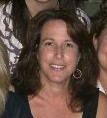Au Pairs an Affordable Option for Child Care

Finding a reliable babysitter to look after young children can be an uncertain and costly undertaking, leaving many working parents often scrambling for coverage even when they employ someone trustworthy.
It doesn’t have to be that way. Barbara Buxbaum, a local child care coordinator for Cultural Care Au Pair, a Cambridge, Mass.-based service that matches families and young women from abroad, said while local families have an assortment of viable options available to them in Westchester, an au pair can provide something that few, if any, other alternatives can.
“It’s a wonderful thing to bring someone in from another country and add that dynamic to your family; it connects to a larger world,” said Buxbaum, a Chappaqua resident. “It’s a learning experience from both sides and it can enrich a family.”
Buxbaum helps the agency with its rigorous screening process to help match families with the right au pair and makes sure that all requirements from both parties are followed through ongoing monitoring. She also intervenes if there are any cultural differences that could cause a problem. Nearly all of the au pairs are women, mostly between 18 and 25 years old, from Europe, Asia or South America.
Requirements for the family caps work at 45 hours a week and a maximum of 10 hours a day. There must be a bedroom available for the au pair in the house, not another room that’s converted into living quarters, said Buxbaum who serves most of Westchester but concentrates on Chappaqua, Briarcliff Manor, Pleasantville, Mount Kisco and neighboring communities. Families are also prohibited from asking the au pair to perform household chores except when it relates to child care, she said.
Au pairs must take at least six credits of postsecondary education and attend a monthly meeting with other au pairs during their stay. Typically, the young women come to perfect their English, go to school and experience life in the United States.
“They come and perform child care in exchange for becoming part of the family,” Buxbaum said. “They often come here to learn the language, see the country, to take education courses. They have to; it’s mandatory.”
Each assignment is for one year, although under certain circumstances it can be extended. The rules are established by the U.S. Department of State, Buxbaum said.
Buxbaum is one of about 600 local child care coordinators for Cultural Care Au Pair throughout the United States, said Susan Robinson, vice president of communication for the agency, which has been operating since 1989. She said some families use the service every year until it’s not needed any longer.
“Our hands-on local child care coordinators are a key part of the success of Cultural Care Au Pair and one of many reasons why families come back to us year after year for flexible and affordable live-in child care,” Robinson said. “Barbara is a terrific and knowledgeable source for anyone in the area who is interested in getting more information on hosting an au pair.”
In addition to the intercultural experience, Buxbaum said reliability and cost make the au pair option attractive. The expense is typically less than hiring a babysitter or nanny or sending a child to day care. Cultural Care Au Pair charges an upfront fee of between $6,000 and $7,000, plus the family pays a $195 weekly stipend. There is also a $500 charge toward the au pair’s education courses.
During a full year that computes to about $350 a week, better than most other options along with the other advantages, perhaps debunking any misconceptions that it’s an exclusive program for the wealthy
“They’re there 24/7, they’re in your house, they get to know you in a different way,” Buxbaum said. “It’s an intimate relationship. They become part of the family.”
Some families are also enticed to hire au pairs if they have adopted children from abroad. Buxbaum, the mother of two children she adopted from South Korea, said if she had to do it over again she would opt for an au pair. Along with cost savings, in her case having her children with someone from their background would have been an added benefit.
For more information about Cultural Care Au Pair, contact Buxbaum at 914-238-3410 or through email at barbara.buxbaum@lcc.culturalcare.com. Those interested can also visit www.culturalcare.com or call 1-800-333-6056.

Martin has more than 30 years experience covering local news in Westchester and Putnam counties, including a frequent focus on zoning and planning issues. He has been editor-in-chief of The Examiner since its inception in 2007. Read more from Martin’s editor-author bio here. Read Martin’s archived work here: https://www.theexaminernews.com/author/martin-wilbur2007/
